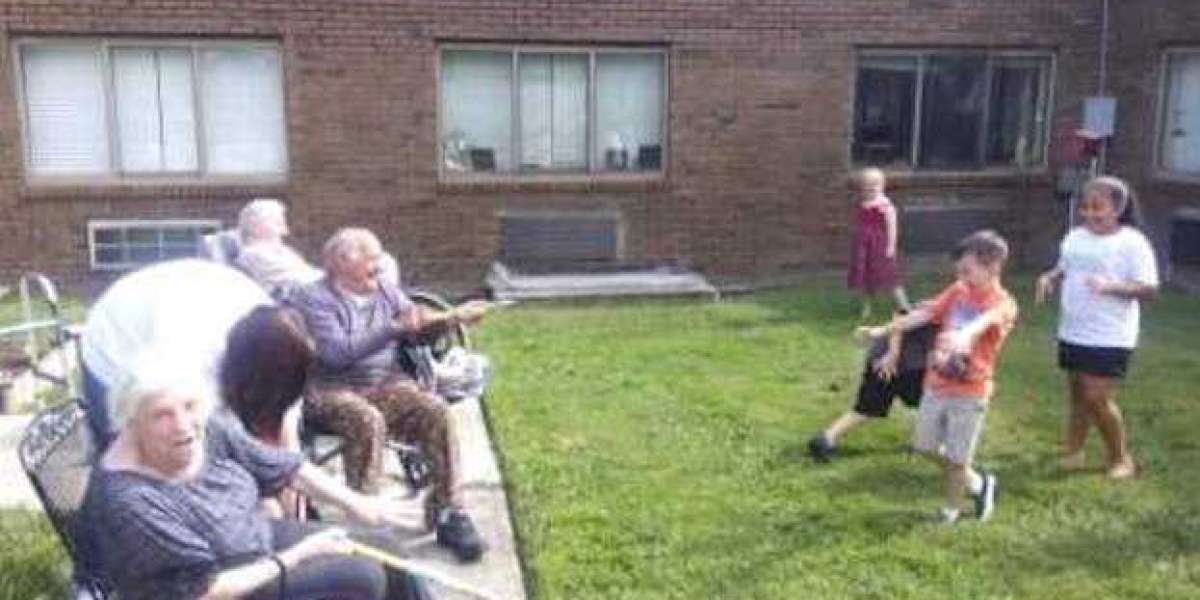Should elders and infants attend the same daycare facility? It's an odd-sounding question, but a rising number of day care centers around the country are responding affirmatively. And, according to a growing body of evidence, doing so is beneficial to both the young and the old alike.
The term "adult day care" is probably unfamiliar to the majority of people. Because to the efforts of public personalities such as Senator Elizabeth Warren and Ivanka Trump, we are constantly hearing about the need of paid child care for the most vulnerable people of our society. We hear a lot less about how to care for our elderly people.
Adult day care, like day care for infants and toddlers who are too young to attend school, is for seniors who require assistance and supervision throughout the day and who are looking for stimulation and companionship with other elders. Because of our increasingly generationally isolated society, this is the end effect.
Instead of living together or in close proximity to one another and sharing the responsibilities of caring for small children, the elderly, and the sick, people in need of care are increasingly confined to care facilities with their generational counterparts. The disintegration of the nuclear family and the increase in familial mobility have only served to hasten the progression of this phenomena. Babies are raised hundreds of miles away from their grandparents, while aged parents are raised several states away from their grandchildren.
Consequently, our society has become more generationally stratified than it has ever been, with the elderly feeling particularly alienated in the process. Several studies, including one conducted by the University of California at San Francisco, have found that 43 percent of seniors report feeling lonely. According to the findings of the same study, identifying as lonely is associated with a startling 59 percent increased chance of poor health and a 45 percent increased risk of mortality. Short and sweet, the epidemic of loneliness among the elderly is not only an emotional tragedy, but it is also a health threat.
And, while babies and toddlers are too young to understand what they are losing out on without the presence of elders in their life, raising children in a culture where the median age hovers around 30 is unnatural and bizarrely backward in its thinking and practices. Ageing adults, according to Stanford University researchers, are one of the best groups to spend time with young children, not only because they can pass on decades of wisdom, but also because they are at a stage in their lives where they have the availability and patience to do so, as well as the ability to provide the kind of stimulation that young children require to thrive.
As the researchers put it, "Older individuals are uniquely qualified to address these demands in part because they desire meaningful, productive work and interaction." "They are on the lookout for—and in desperate need of—purpose in their life."
I've witnessed this directly with my own children, who spend a pitifully small amount of time with older citizens, much alone grandparents who live thousands of kilometers away. Our cooperative housing community in Washington, D.C. is primarily made up of retirees. One of them picked up my six-year-old daughter from school and spent an inordinate amount of time carefully teaching her how to play the cello.
Another will spend an inordinate amount of time on the floor with my four-year-old son, who is fascinated by his globe. Yet another woman invited my daughter to assist her in her garden, where she joyfully plucked weeds for more than an hour while learning about the garden's history as a World War II victory garden, which she thoroughly enjoyed. Despite the fact that these exchanges have only occurred on occasion, they have undoubtedly enhanced the lives of my children.
Day care facilities are increasingly attempting to institutionalize these types of cross-generational connections through the practice of "intergenerational care," which is short for "intergenerational contact." According to The Atlantic, the Mount Intergenerational Learning Center, which is located inside a nursing home in the Seattle region, is an example of a preschool within a nursing home.
Almost every day, elderly and children participate in activities together, such as music lessons or painting classes. The institution has almost 400 youngsters on its waiting list, according to the director. According to a survey by Generations United, a non-profit organization that supports intergenerational activities, there are 105 intergenerational "shared space" facilities across the United States.
According to the survey, Americans strongly favor the establishment of such facilities: 94 percent believe that the elderly possess characteristics that are beneficial to children, and 89 percent believe the opposite. Americans believe that bringing together the young and the old in one care center is a "good use of resources," and nearly three-quarters believe that "programs and facilities that serve different age groups prevent children/youth and older adults from benefiting from each other's skills and talents."
As part of its findings, the paper includes comprehensive data that attests to the numerous benefits of intergenerational care, including the following:
participation in intergenerational programs and meaningful cross-age relationships may help to reduce social isolation and increase older adults' feelings of belonging, self-esteem, and overall health while also improving the social and emotional skills of children, adolescents, and their parents and caregivers
According to the findings of the study, mixed-age care fosters empathy in both the young and the old, with one mother of a preschool-aged participant stating that her daughter had become "extremely empathic, well beyond her years" as a result of the program.
For example, young children who participated in intergenerational care demonstrated more advanced motor and cognitive skills as well as higher developmental scores as well as more advanced social and emotional competencies than their non-intergenerational peers. Older adults who participated in intergenerational care reported lower levels of loneliness as well as reduced agitation as well as improved health, among other findings.
We will never be able to reverse the current reality of young people being compelled to leave home in pursuit of better prospects and families being fragmented across generations in different parts of the country. Although as a society, we may support and promote the trend to reunite generations in safe and compassionate care facilities, we cannot force this change.
The idea of putting babies and the elderly in the same day care facility may seem far-fetched, yet it is one of the most promising approaches of reducing senior alienation while also exposing youngsters to a generation they would otherwise never have met.



